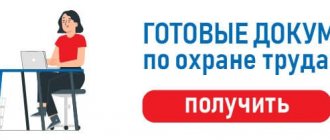ST 264.1 of the Criminal Code of the Russian Federation
Driving a car, tram or other power-driven vehicle by a person who is intoxicated, who has been subjected to administrative punishment for driving while intoxicated or for failure to comply with the legal requirement of an authorized official to undergo a medical examination for intoxication, or who has a criminal record for committing a crime while intoxicated. provided for by parts two, four or six of Article 264 of this Code or this article -
shall be punishable by a fine in the amount of two hundred thousand to three hundred thousand rubles, or in the amount of the wages or other income of the convicted person for a period of one to two years, with deprivation of the right to hold certain positions or engage in certain activities for a term of up to three years, or with compulsory labor for a term of up to four hundred eighty hours with deprivation of the right to hold certain positions or engage in certain activities for a term of up to three years, or forced labor for a term of up to two years with deprivation of the right to hold certain positions or engage in certain activities for a term of up to three years, or imprisonment for a term of up to two years with deprivation of the right to hold certain positions or engage in certain activities for a period of up to three years.
Is it possible to avoid deprivation of rights under Article 264 of the Criminal Code of the Russian Federation?
Yes, it is possible, but not always.
Yes, part 1 of Article 264 of the Criminal Code of the Russian Federation implies the appointment of deprivation of a driver’s license at the discretion of the judge - when a sober driver has caused serious harm to health. This, in turn, will depend on the combination of mitigating and aggravating factors in an accident.
Meanwhile, despite the fact that according to other standards, deprivation is provided unconditionally - that is, it is assigned in any case, it can still be avoided. The fact is that the Supreme Court in the same PPVS No. 25 in paragraph 12 indicated that additional punishment can also be abolished in a specific court verdict on the basis of Article 64 of the Criminal Code of the Russian Federation.
And it is precisely in Article 64 that in exceptional cases additional punishment may not be imposed. In this case, such circumstances may include:
- circumstances mitigating the social danger of the crime,
- driver assistance after an accident to victims,
- reconciliation of the parties.
At the same time, there may be one or several such factors in a case. Of course, it is better to have as many such factors as possible.
Thus, if there are grounds and at the discretion of the court, deprivation of rights when brought to criminal liability can be avoided - even in cases where it is provided for by the relevant norm of the article of the Criminal Code of the Russian Federation.
What happens if there are several victims or dead?
This carries the most severe criminal penalties in current legislation for 2021. Namely:
- if as a result of a driver’s violation while sober, people (at least two) died, then liability will be under Part 5 of Article 264 - from forced labor for up to 5 years and to imprisonment for up to 7 years with deprivation of rights for up to 3 years,
- if the culprit was drunk, did not comply with the requirement to undergo a medical examination, or left the scene of an accident, then Part 6 of Article 264 - imprisonment for 8-15 years with deprivation of a driver’s license for up to 3 years.
Summary table of criminal penalties in 2021
So, let’s immediately summarize all further discussion in this article and immediately present possible measures of criminal liability for committing an accident.
Table of criminal liability for road accidents
| Article of the Criminal Code of the Russian Federation | For what violation or consequence? | What responsibility? |
| Art. 264, part 1 | For grievous harm to the health of victims of an accident (the culprit is sober) | Restriction of freedom up to 3 years; or forced labor for up to 2 years with deprivation of rights for up to 3 years or without deprivation; or arrest for up to six months; or imprisonment for up to 2 years with or without deprivation of a driver’s license for up to 3 years |
| Art. 264, part 2 | For grievous harm, if the driver was drunk, fled to the scene of an accident or refused a medical examination | Forced labor for up to 5 years with deprivation of rights for up to 3 years; or imprisonment from 3 to 7 years with deprivation of a driver’s license for up to 3 years |
| Art. 264, part 3 | For a traffic accident with a fatal outcome of one person (the culprit is sober) | Forced labor for up to 4 years with deprivation of rights for up to 3 years; or imprisonment for up to 5 years with deprivation of a driver’s license for up to 3 years |
| Art. 264, part 4 | For a fatal accident with one fatality, if the at-fault driver was drunk, fled to the scene of the accident or refused a medical examination | Imprisonment from 5 to 12 years with deprivation of a driver's license for up to 3 years |
| Art. 264, part 5 | For a fatal accident with the death of 2 or more people (the culprit is sober) | Forced labor for up to 5 years with deprivation of rights for up to 3 years; or imprisonment for up to 7 years with deprivation of a driver’s license for up to 3 years |
| Art. 264, part 6 | If 2 or more people died in an accident, and the culprit is intoxicated, or refuses to undergo a medical examination, or leaves the scene of the accident in violation of traffic rules | Imprisonment from 8 to 15 years with deprivation of a driver's license for up to 3 years |
| Art. 264.1, part 1 | Repeated intoxication was detected during an accident (regardless of the specific violation that caused the incident), if the first time was brought under administrative charges or for refusal of examination | A fine of 200 to 300 thousand rubles or in the amount of income for 1-2 years with deprivation of rights for up to 3 years; or compulsory work up to 480 hours with deprivation of rights for up to 3 years; or forced labor for up to 2 years with deprivation of rights for up to 3 years; or imprisonment for up to 2 years with deprivation of a driver’s license for up to 3 years |
| Art. 264.1, part 2 | Repeated driving while intoxicated, if the first time you were charged under an article of the Criminal Code of the Russian Federation related to intoxication | Fine from 300 to 500 thousand rubles or in the amount of income for 2-3 years with deprivation of rights for up to 6 years; or correctional labor for up to 2 years with deprivation of rights for up to 6 years; or restriction of freedom for up to 3 years with imprisonment for up to 6 years; or forced labor for up to 3 years with deprivation of rights for up to 6 years or without deprivation; or imprisonment for up to 3 years with deprivation of a driver’s license for up to 6 years |
| Art. 268, part 1 | Any violation of traffic rules by a cyclist, pedestrian or passenger, if this led to an accident with serious consequences for human health | Imprisonment for up to 3 years; or forced labor for up to 2 years; or arrest for up to 4 months; or imprisonment for up to 2 years |
| Art. 268, part 2 | Violation of traffic rules by a cyclist, a pedestrian on the road or a passenger, if this resulted in the death of a person | Restriction of freedom up to 4 years; or forced labor for up to 4 years; or imprisonment for up to 4 years |
| Art. 268, part 3 | Violation of traffic rules by a cyclist, passenger or pedestrian resulting in the death of two or more people | Forced labor for up to 5 years; or imprisonment for up to 7 years |
| Art. 105, part 1 | Intentional murder - if, for example, it is proven that the fatal accident was committed intentionally | Imprisonment for 6-15 years with or without restriction of freedom for up to 2 years |
| Art. 111 of the Criminal Code of the Russian Federation, part 1 | Intentional infliction of grievous bodily harm | Imprisonment up to 8 years |
| Art. 112, part 1 | Intentional infliction of moderate harm to health without consequences | Restriction of freedom up to 3 years; or forced labor for up to 3 years; or arrest for up to six months; or imprisonment for up to 3 years |
| Art. 115, part 1 | Intentional harm in an accident with minor harm to health | Fine up to 40,000 rubles or 3 months’ salary; or compulsory work up to 480 hours; or correctional labor for up to 1 year; or arrest for up to 4 months |
| Art. 125 of the Criminal Code of the Russian Federation | Leaving a person in danger or helpless (including after an accident) - this article can be applied, for example, when fleeing the scene of an accident - even if you were the injured party in the incident | Fine up to 80,000 rubles or 6 months’ salary; or compulsory work up to 360 hours; or correctional labor for up to 1 year; or forced labor for up to 1 year; or arrest for up to 3 months; or imprisonment for up to 1 year |
How are these punishments different?
Let us now explain what these responsibilities listed in the right column are and what they are.
- A fine - everything is simple here, it is an obligation to pay your hard-earned money to the state budget as punishment. The largest amount is established for repeated intoxication for the third time under Part 2 of Article 264.1 of the Criminal Code of the Russian Federation - up to 500,000 rubles.
- Compulsory work is the obligation of a convicted person to work for the benefit of society (as a janitor, for example) in his free time from his main job. The person is not paid anything for this work.
- Correctional labor differs from mandatory labor in that 5 to 20% of money is withheld from your salary in favor of the state.
- But there is also forced labor - here, as with correctional labor, exactly the same percentage is withheld. However, as with compulsory work, here the convicted person no longer works at the place of his main job, but in another place, usually appointed by the court.
- By restricting freedom, a person is prohibited from either not leaving home, or not leaving his city, or not appearing in certain places and near them, at events, and so on.
- Arrest is the most isolating punishment. That is, a person is placed in prison without society.
- Deprivation of liberty already takes place in colonies or medical institutions.
What if a passenger in the culprit's car was injured?
Please note that criminal liability may begin to apply not only in cases where the driver, through his culpable actions, collided with another car, where another person was injured or killed, and not only when hitting a pedestrian. Even if the traffic violator had a passenger in the car, the driver may be held liable. And, if in the case of a taxi car, for example, this is logical and natural, then in the case when a spouse is sitting next to you in the passenger seat, for example, it is no longer so.
Nevertheless, it is true! Even if only the car of the person responsible for the accident was damaged (for example, in a collision with a tree), and a passenger also suffered serious injury or died, the driver will bear criminal liability.
What happens if there are victims?
Now let's take a closer look at Article 264 of the Criminal Code of the Russian Federation!
If there are people injured in an accident who have suffered slight or moderate harm to health, liability is provided under the Administrative Code - Article 12.24. Sanctions for it range from a fine of 2,500 rubles to deprivation of a driver’s license for up to 2 years.
And now, actually, about criminal liability...
The most important criminal article for an accident is 264 of the Criminal Code of the Russian Federation!
Despite the fact that criminal liability for committing an accident is represented by a large number of articles of the Criminal Code of the Russian Federation, most often drivers are prosecuted under Article 264. The car moves fast and heavy, therefore it is a source of increased danger. That is why when drivers, passengers or pedestrians make mistakes that lead to accidents, people are often injured. Less often - dead. Although, if we are talking about a collision with a pedestrian, then the number of deaths in statistics can increase significantly.
Consequently, for the culprit of such an accident with grave consequences, a special article of the Criminal Code has been prepared, which provides for certain types of punishment depending on the severity of the consequences or the condition of the guilty driver himself.
So, this article of the Code provides for penalties depending on the severity of the consequences:
- if serious harm has been caused to the health of one or more victims,
- if there was a fatal accident with one fatality,
- if 2 or more people died in an accident.
Please note that in case of minor or moderate harm to health, the culprit is subject to an administrative charge with possible deprivation of rights or a fine - 12.24 of the Code of Administrative Offenses of the Russian Federation.
But it is not only the severity of the consequences that influences punishments. Depending on the circumstances relating to the culprit himself, responsibility also changes:
- if the culprit of the accident was sober, then “standard” punishments are applied,
- if the driver turns out to be drunk, and this is confirmed by the results of the examination, then more severe penalties will be imposed.
Please note that in order to impose a more severe punishment, the culprit of the accident may not only be drunk. In this case, this also includes hiding from the scene of an incident and refusing a medical examination. Another very important point is that the driver must be the violator in order to become the culprit of the accident. And its violation must be in a direct cause-and-effect relationship with the collision. For example, the absence of a compulsory motor liability insurance policy for such a person is a violation of the law, however, it cannot lead to the incident itself. Therefore, the Supreme Court, in Resolution of the Plenum No. 25 of December 9, 2008, directly stated (paragraph 3) that in this case the court must indicate specific violated points of the traffic rules that caused the accident. If it is established that both participants in the accident are guilty of each other, then both will be held criminally liable.
What are the criminal penalties for intentional accidents?
We looked at them in the table above. And these include those articles that do not directly imply intentional harm to health specifically in an accident. We are talking about the general norms of the Criminal Code of the Russian Federation:
- Article 105 – murder,
- Article 115 – intentional minor harm to health,
- Article 112 – intentional harm of medium gravity,
- Article 111 – intentional minor harm.
Moreover, if such harm was caused through negligence, then the culprit of such an accident will be punished under Article 12.24 of the Code of Administrative Offenses of the Russian Federation. But if it is proven that the driver deliberately committed the collision with evil intentions, then he will face criminal liability.
What traffic violations are subject to criminal liability in an accident?
There are not many of them, and almost all of them are associated with either serious consequences for the health of the victims or the death of people, or with the intoxication of the culprit, his hiding from the scene of the accident, or his refusal to undergo a medical examination. Moreover, if all these listed circumstances are present in combination (for example, the culprit killed a pedestrian and was drunk), then the punishment will be more severe.
However, there are other types of liability. Thus, in 2021, there are the following violations that may lead to punishment under one or another article of the Criminal Code of the Russian Federation:
- fatal accident (in this case, the most severe criminal liability - especially if the culprit was drunk, fled or refused a medical examination),
- Road accidents with victims diagnosed with serious harm to health,
- intentional collision with people, other cars or anything else, if there is even slight harm to the health of the victims,
- destruction of other cars.
Please note that the very fact of violating a particular clause of the traffic rules, as well as the severity of such an offense, does not in any way affect the possibility of criminal punishment for an accident. It is the consequences in the form of people injured or killed that matter.
For example, if a driver ran a red signal at a busy intersection or if he just slightly drove out of his lane, but both of these violations led to the same consequences, then such a driver will bear the same responsibility under a criminal article... Other things being equal, of course.
Liability for a fatal accident
In the event that the accident ends in death, then the punishment will be significantly harsher than for serious consequences. And here there are also 2 measures of responsibility:
- if the culprit was sober, then Part 3 of Article 264 of the Criminal Code of the Russian Federation is subject to application - from forced labor for up to 4 years to imprisonment for up to 5 years, and in addition, deprivation of rights for up to 3 years is applied,
- if the guilty participant in the accident was drunk, refused to undergo testing for alcohol and drugs, or left the scene of the accident, then he faces Part 4 of the same article with imprisonment for 5-12 years and deprivation of rights for up to 3 years.
Liability for an accident with serious consequences for human health
So, any violation of traffic rules or any other law or regulation that led to an accident subjects the driver to punishment, in our case under Part 1 of Article 264 of the Criminal Code of the Russian Federation, which is precisely responsible for serious harm to human health.
And here the driver faces:
- restriction of freedom for up to 3 years,
- or forced labor for up to 2 years with deprivation of rights for up to 3 years or without such deprivation,
- or arrest for up to six months,
- or imprisonment for up to 2 years with deprivation of a driver’s license for up to 3 years or without such deprivation.
Moreover, there are no specific clear signs of serious consequences. And judges, in their own opinion, assess this harm based on the results of a forensic examination. However, in Russia there is Government Resolution No. 522, which establishes general criteria for serious harm to health:
- loss of hearing, speech, other organ or complete loss of its main function,
- if the harm is life-threatening (here it is, a fuzzy criterion),
- abortion,
- mental disorder of the victim in an accident,
- facial disfigurement that cannot be corrected by medicine,
- loss of general ability to work by 1/3 or more,
- loss of professional ability to work (for example, if a person works as a programmer and has lost his fingers, or if they are in place, but are incorrigibly paralyzed).
If the culprit was drunk or fled
Let us repeat once again that in this case, refusal of a medical examination is also equivalent to a drunken accident.
And the punishments here are applied under Part 2 of Article 264, they are much stricter:
- forced labor for up to 5 years with deprivation of a driver’s license for up to 3 years,
- or imprisonment for a term of 3 to 7 years with deprivation of a driver’s license for up to 3 years.



